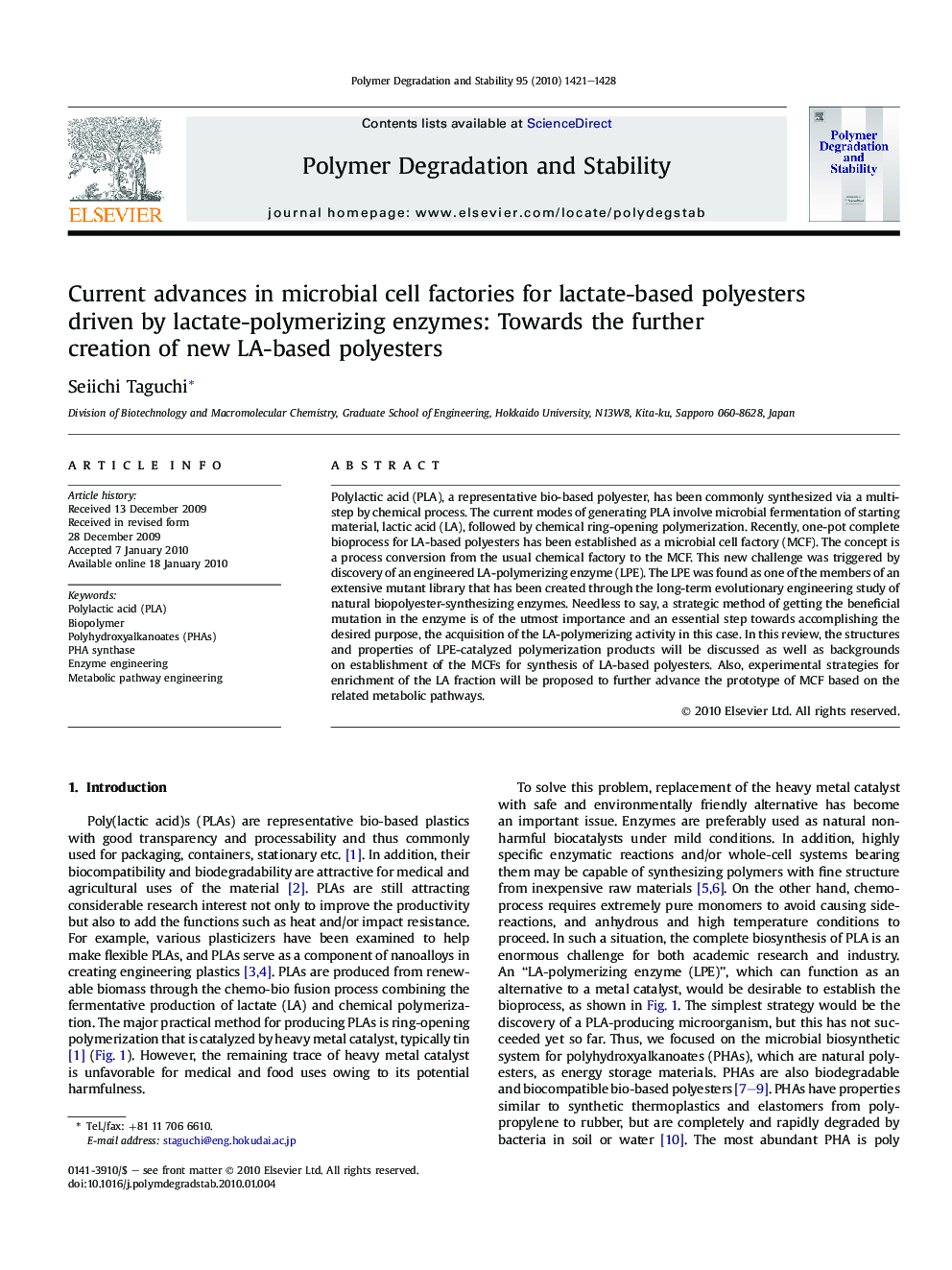| Article ID | Journal | Published Year | Pages | File Type |
|---|---|---|---|---|
| 5203390 | Polymer Degradation and Stability | 2010 | 8 Pages |
Abstract
Polylactic acid (PLA), a representative bio-based polyester, has been commonly synthesized via a multi-step by chemical process. The current modes of generating PLA involve microbial fermentation of starting material, lactic acid (LA), followed by chemical ring-opening polymerization. Recently, one-pot complete bioprocess for LA-based polyesters has been established as a microbial cell factory (MCF). The concept is a process conversion from the usual chemical factory to the MCF. This new challenge was triggered by discovery of an engineered LA-polymerizing enzyme (LPE). The LPE was found as one of the members of an extensive mutant library that has been created through the long-term evolutionary engineering study of natural biopolyester-synthesizing enzymes. Needless to say, a strategic method of getting the beneficial mutation in the enzyme is of the utmost importance and an essential step towards accomplishing the desired purpose, the acquisition of the LA-polymerizing activity in this case. In this review, the structures and properties of LPE-catalyzed polymerization products will be discussed as well as backgrounds on establishment of the MCFs for synthesis of LA-based polyesters. Also, experimental strategies for enrichment of the LA fraction will be proposed to further advance the prototype of MCF based on the related metabolic pathways.
Keywords
Related Topics
Physical Sciences and Engineering
Chemistry
Organic Chemistry
Authors
Seiichi Taguchi,
